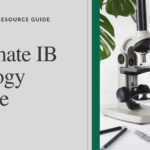In these situations, the IB provides a procedure called a “remark” or “inquiry upon results” to go over and reevaluate the exam script. We’ll go over everything you need to know in this blog post regarding the IB Biology results remark procedure and how important it is for students looking for an accurate assessment of their work.
Table of Content
Everything You Should Know About the IB Biology Results Remark Process
Understanding the Remark Process
IB Biology Results Remark Process
- Requesting a Remark
- Categories of Remark
- Assessment Components
- Considerations for IB Biology Remarks
Tips for Students Considering a Remark
- Review Your Assessment
- Consult with Your IB Biology Tutor
- Understand the Process
- Evaluate the Feedback
Understanding the Remark Process
Under the guidance of their committed IB Biology tutor, students can seek a review of their examination scripts during the remark process if they believe there were inaccuracies in the first marking. This is a great opportunity for students. It is important to make it clear that the remark process is not a content reassessment or a reevaluation of the student’s understanding.
Through close collaboration with an expert IB Biology tutor, students maximize the likelihood of a fair and accurate assessment by ensuring that the marks they receive accurately represent the content presented in their examination scripts.
Key Points to Consider
1. Initial Marking
Before considering a remark, it’s crucial to understand how the initial marking process works. IB examiners follow strict guidelines and marking schemes to assess each response. However, errors or oversights may still occur.
2. Types of Remarks
Category 1: Review of the original marking. Category 2: Review of the original marking along with a senior examiner providing additional feedback
3. Fee Structure
The remark process is not free, and there is a fee associated with each requested remark. Students should check with their schools regarding the specific fees and payment procedures.
4. Possible Outcomes
No Change The original marks are confirmed. Increase The marks are increased, and the candidate is awarded a higher score. Decrease The marks are reduced, and the candidate retains the original, lower score.
Now, let’s explore how the remark process specifically applies to IB biology.
IB Biology Results Remark Process
1. Requesting a Remark
Students must express their intention to request a comment from their IB coordinator. The coordinator submits the request on behalf of the student.
2. Categories of Remark
A Category 1 remark involves a reevaluation of the initial marking. A Category 2 remark includes a review by a senior examiner and provides additional feedback.
3. Assessment Components
In IB Biology, the remark process applies to both internal assessments (IA) and external assessments (exams). For IAS, a Category 1 remark involves a complete reevaluation by a different examiner, while a Category 2 remark involves a senior examiner reviewing the marking. For Category 1 and Category 2, remarks may be requested.
4. Considerations for IB Biology Remarks
Since IB Biology involves a combination of internal assessments and exams, students choose to request a comment for either or both components. It’s important to carefully review the specific feedback provided in Category 2 remarks, as it offers valuable insights into areas for improvement.
Tips for Students Considering a Remark
1. Review Your Assessment
Before opting for a remark, thoroughly review your assessment to identify areas where you believe the initial marking may be inaccurate.
2. Consult with Your IB Biology Tutor
Discuss your concerns with your IB Biology tutor. They provide insights into the remark process and help you determine if it’s a suitable course of action.
<h4`id=”Understand”>3. Understand the Process
Familiarize yourself with the review process, including the potential outcomes and associated fees. This understanding will help you make an informed decision.
4. Evaluate the Feedback
If opting for a Category 2 remark, carefully consider the additional feedback provided by the senior examiner. This feedback will be valuable for your future studies.
Conclusion
The IB Biology results remark process serves as a mechanism for students to seek a fair and accurate assessment of their performance. Consulting with IB Biology tutor and coordinators provides valuable guidance in making an informed decision regarding the review process.
For students navigating the IB Biology remark process, IB Teach stands as a reliable partner. Our experienced tutors offer comprehensive guidance, ensuring students understand the intricacies of the process and make informed decisions. IB Teach is committed to supporting students on their educational journey and promoting excellence and success in the IB program.





